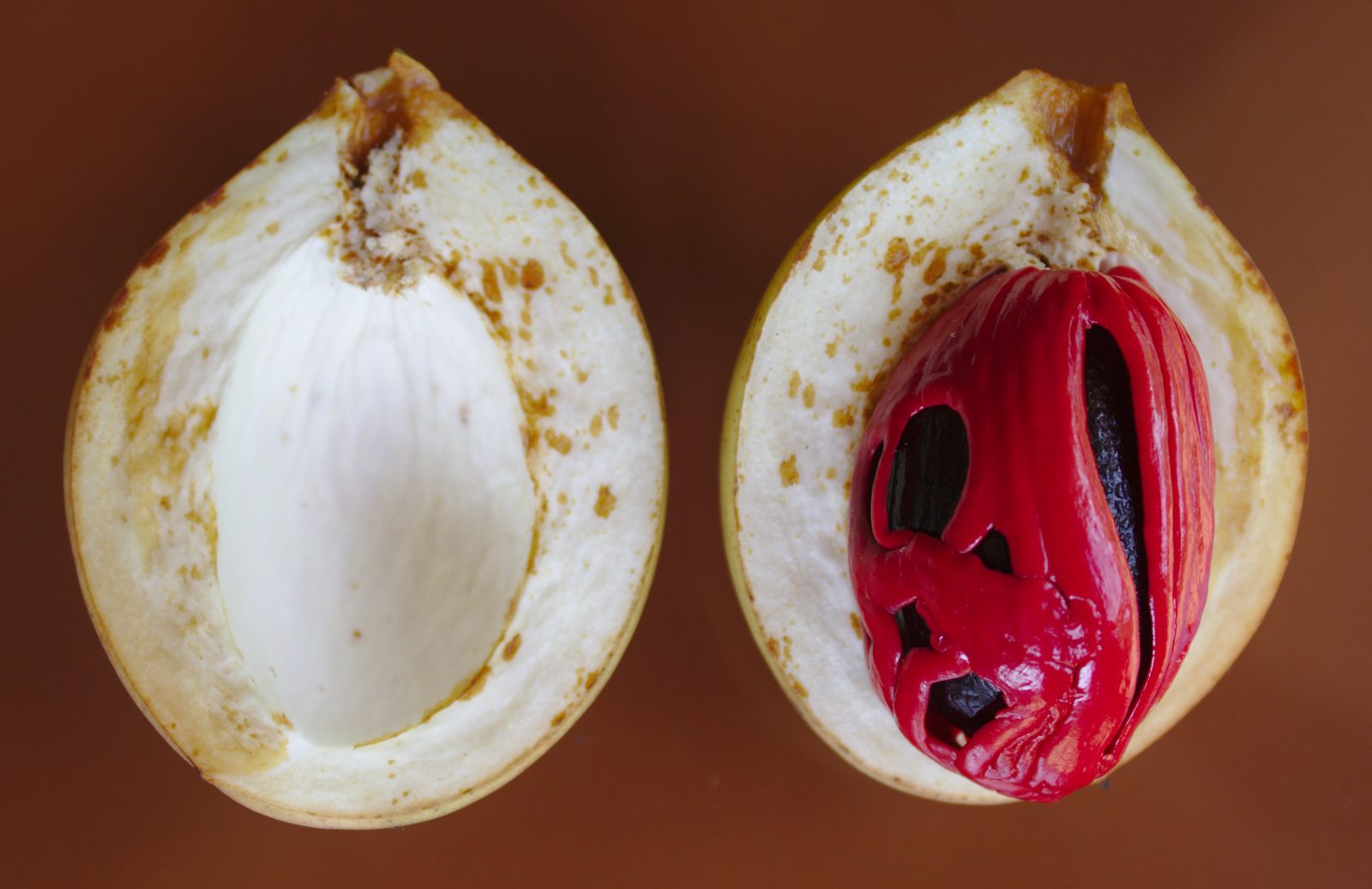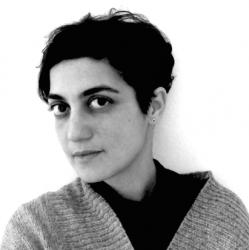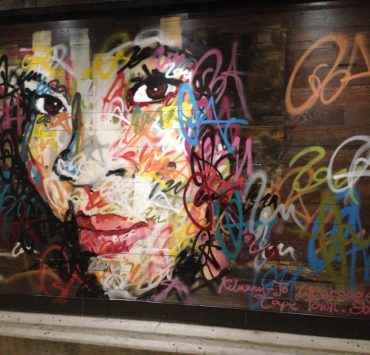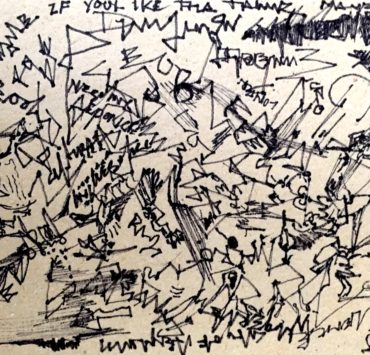
On a warm August night in Brussels, a curator, Orient, of feminist inclination, dressed up in an Egyptian belly dance costume, swaying her hips and breasts to Umm Kulthum’s epic song of a thousand and one nights. This act of seduction was intended for an audience of One. One was a man, a curator. This highly staged act, of Orient sexualizing herself for One’s gaze, transcended all codes of proper politically correct behavior. As both overcame mediocre intercourse, Orient gently asked One how, despite her intentionally seductive act, he had achieved at best an indefinite arousal. One told her repeatedly that sex didn’t matter so much to him. He enjoyed it, but he was not ruled by it; that in fact, he preferred to have what he curiously dubbed a soft erection than succumb to her desire. It was purposeful; One would not allow his desire to fully blossom around Orient. In fact, he said: in private, call me Soft. To her this felt of dysfunction. But was it something else? Perhaps he did not really like her? Perhaps he secretly liked men? As the summer receded, Orient lingered in Europe, embracing the cold, and set out to make a full investigation. She began talking to friends in the field of art, both men and women: intellectuals, writers, artists, philosophers. It wasn’t just him. More and more, she realized, the greater the intellectual and imaginative capacity of the man, the more susceptible they were to what One suffered from. They all wanted, privately, to be called Soft.
It was both daunting and upsetting to Orient that she could not rule over One — or other men she encountered in love — through her projected desire to be desired. In fact, the more desire and urgency she brought to love, the more she found herself swathed in his cold softness. It was only in Europe that this ambivalence toward sex seemed to be accompanied by an imaginary freedom. Perhaps Gala was right, half a lifetime ago, when she sang, “Freed from Desire.” Was it that? Or was the world of art becoming rather transcendental? Returning, perplexed, to a place that was no longer Cairo, she shared her concerns with her mother. “Oh, Orient, Orient. This doesn’t sound new at all. It sounds quite Christian, in fact!” Orient lost sleep over this peculiar condition. Might this withholding of a full expression of sexuality, this subversion of orgasm, somehow be a side effect of consumer culture? Less Christian than capitalist? Did softness correlate to new economic realities? Was it a response to market trends? Was the rarifying of the sex act meant to convey a specific kind of culturedness?
Orient thought again about what her mother had said. Sexual pleasure, in Christianity, was planted by the Devil to drive a wedge between man and God. In the art world, it seemed, sexual pleasure had wedged itself between man and his intellectual power. Maybe the curse went all the way back to Adam’s expulsion from the garden for frolicking with Eve. Back to the apple. Apples grew in Eden, but now they were imported from America…. Her thoughts drifted to the greengrocer. Orient liked hard red apples. Was it that One and his ilk imagined that an undelayed gratification, some coming insurrection of hormonal fluids, would leave them marooned among the masses of men?
Orient felt perplexed. She was content with Soft’s affectionate caresses, his half-formed form. What did bother her, though, in the afterfeeling of it all, was that One seemed to imagine himself a more evolved species, beyond the sphere of mass consumption. Something similar seemed to be at play in their different responses to the market. Orient gravitated to all manner of products, whereas One patronized only a few exquisitely specific boutiques, invisible to the naked eye. Orient was not used to that. Visibility and desire were very much connected. No matter how much she disliked that murky gilded print on brown leather, Louis Vuitton still ruled the imagination of the fashion-minded where she came from.
Diligently investigating the etiology of softness over dinner with an Austrian pseudoscientist in Beirut, Orient was told that perhaps what she was trying to understand was something quite simple. Biological. “I know a man in Los Angeles,” he said, “whose manhood reaches his knees. When he gets hard, all the blood in his brain rushes downward, and the man faints.” Orient saw another parallel: the more intellectually conscious and plugged in One was, the more guarded they were in intimate settings. They were simply afraid not to think around her. Perhaps for ones such as One, hardness was a luxury they could afford. There is only so much blood in one’s body. She made a mental note to raise this question in the medical sphere.
It was an Armenian friend, a former queer activist and art historian, who inspired a new theory on the topic. Men like One had grown up with post-modern critical theory, she suggested, including the second-wave feminist theory of the Sixties and Seventies. It was women like Luce Irigaray and Hélène Cixous who had set the phallus on fire, a devilish effigy, as part of the struggle for a symbolism less antagonistic to female pleasure; indeed, to orgasm, so long ignored, derided, or even pathologized, as in the psychoanalytic diagnosis of hysteria. Had One completely imbibed such theory? Was his softness a form of excessive politeness, a desire not to offend?
She was dissatisfied with this idea. Could it be true that raising a boy on a healthy diet of feminist theory could only produce a kind of intellectually self-conscious man? That the unintended consequence of that fine pedagogy should be to make it impossible for One to enter Orient without seeing it as privately if not politically invasive, a violent intrusion?
Orient worried that she was on the wrong side of the world perhaps, or the wrong side of history. Her own quest for power was not easy to master in this new world, populated by sexually ambivalent men who insisted on being called Soft. Orient vowed that if Soft was, intentionally or not, slipping the rug out from under her, she would not take it lying down.
Soft asks Orient to accompany him to Barcelona. She agrees. And it is there where she finally starts to see the ways of men. “What would you do if you were a woman?” she asks. “I would use my sex appeal to manipulate others, secure power,” he says. Perhaps it is not yet time to stow away her costume after all. There may yet be a place for the trappings of theatrical femininity, rummaged out of the historical wardrobe. Perhaps this is why she retains her stage name. Though these days, upon making one’s intimate acquaintance, she asks him, too, to call her Soft.
Originally published in Bidoun, re-published with permission of the author.
Image Credits: wikimedia

Sarah Rifky is an Egyptian writer and curator. She is co-founder of Beirut (2012-2015) an art initiative and exhibition space in Cairo. She is the author of numerous essays of art and other speculative fiction. Currently she is pursuing her PhD in History, Theory and Criticism at the Massachusetts Institute of Technology, where she is a fellow of the Aga Khan Program for Islamic Architecture.







